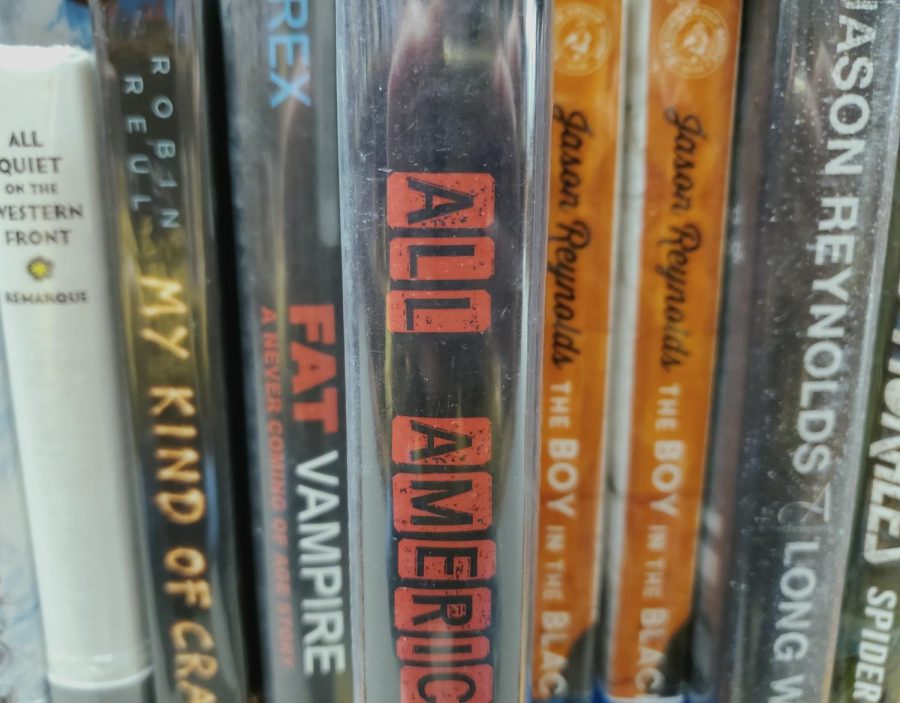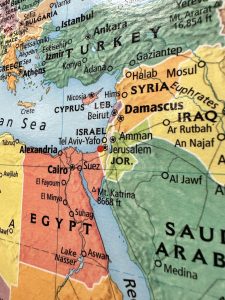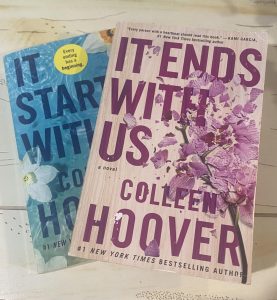Banning Books Bans Self-Expression
March 4, 2022
History is taught so future generations do not repeat mistakes similar to those from the past. Unfortunately, banning books has made another comeback.
Groups that claim to support parietal rights are actively challenging books they feel to be inappropriate for school libraries. While these groups claim they target sexually excplicit literature, the majority of challenged books deal with themes of racism and LGBTQ issues.
The American Library Association’s list of the top 10 most challenged books includes multiple books discussing racism, such as “The Hate U Give” by and “Stamped: Racism, Antiracism, and You” by Ibram X. Kendi and Jason Reynolds. The number one book was “George” by Alex Gino, which includes LGBTQ content.
Throughout our history, banning literature has rarely ended well. Harriet Beecher Stowe’s book Uncle Tom’s Cabin, published in 1852 which showed the horrors of slavery, was banned in the South, which at the time was mostly pro-slavery. In other historic cases, people even turned to burning books they found threatening.
If anything, outlawing public knowledge from public schools silences the already quiet voices of minorities and damages student’s perspectives. Banning books is banning self-expression.
The ALA Office for Intellectual Freedom reported 273 books challenged and tracked 156 challenges in 2020. The majority of these books included racial injustice or LGBTQ themes.
Literature is the center of human empowerment and change. Knowledge is not just carried through voice but also through stories. Stories passed down from generation to generation have shaped morals and beliefs. At the heart of human existence is literature.
Literature questions one’s perceptions of life and challenges their moral standings. Revolutionary ideas have been sparked through reading, and the greatest innovators and peace makers in the world have been guided by text. Society can not progress without literature.
Unfortunately, these entitled groups trying to ban books from their child’s public school have censored many of these stories and the message they convey. Authors have a right to share their story, whether through narrative or fiction, and use their voices to challenge the perspectives of students. Being able to put oneself into the shoes of someone else is an important ability to teach young students.
Many students are figuring themselves out, and representation in books can be a crucial factor in self-discovery. Learning about the struggles faced by people of color and LGBTQ people is not harmful to students or their beliefs. If anything, it displays empathy.
Sadly, many groups continue to push back on books that dare to question. No matter how a book differs from one’s personal views or morals, it never hurts to see from the opposite side.
Public school is for every child from all backgrounds. Banning books dealing with certain topics is discriminatory towards students who deal with those topics in their own lives. .
In protest of this, Banned Book Week celebrates the freedom to read. Started in 1982, the annual event reminds people of the importance of expression through literature. The theme for 2021, which was set for September 26 to October 2, was “Books Unite Us. Censorship Divides Us.”
Parents, educators, and librarians have all spoken up about the dangers of banning books. Fortunately, adults aren’t the only ones taking charge. Teens have taken a stand for their freedom to read.
Students at Loudoun Valley High School have also shared their views. An Instagram survey conducted on February 21 asked students to describe in one word how they felt about the push to ban books in public schools. Responses included “suspicious,” “frustrated,” “immoral,” “idiotic,” and “regressing.”
Groups argue banning books protects their kids from sensitive and extreme topics such as violence. In the top 10 most challenged books of 2020, “All American Boys” by Jason Reynolds and Brendan Kiely, a story where a cop beats up a black kid, is ranked third.
“All American Boys” includes violence motivated by racism. In the real world, hate crimes towards people of color are committed time and time again. Shielding a child from the real world by restricting their access to books with sensitive topics does nothing to protect them.
Banning public knowledge through banning literature will do nothing but silence the voices of minorities and spread hate. If LGBTQ books are banned, how will a student struggling with their identity find comfort in a character going through similar struggles? If stories told by people of color are banned, how will students of color hear the voices of those experiencing similar things to them?
With literature comes voice. With voice comes expression. With expression comes challenging questions. And with challenging questions comes thought. People are afraid to think. They are afraid to challenge their beliefs and change their point of view if something or someone doesn’t match what they believe to be right.
In order for students to be educated, they need access to all types of viewpoints. Besides, education isn’t just about knowledge but of perspectives and deeper understanding.








